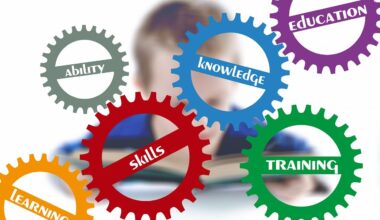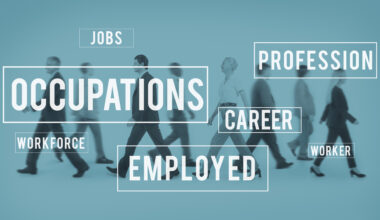How to Future‑Proof Your Career in 2025 Using AI Skills
Introduction: The Smartest Way to Stay Relevant in an AI-Driven World
In today’s fast-changing job market, learning how to future-proof your career in 2025 using AI skills is no longer optional—it’s essential. Artificial Intelligence is transforming industries, automating tasks, and reshaping the way we work across every profession. Whether you’re in marketing, education, finance, healthcare, or creative work, AI is quickly becoming part of daily operations.
But here’s the good news: you don’t need to be a tech expert to stay ahead. You just need the right mindset and the right tools.
In this comprehensive guide, you’ll learn the most in-demand AI skills to master in 2025, how to apply them even without a technical background, and how to combine them with human skills that never go out of style. From prompt engineering and automation to data literacy and ethical AI use, this post will equip you with everything you need to remain relevant, competitive, and in control of your career future.
With AI disrupting every major industry, learning how to work with AI—not against it—is the smartest move you can make. In this guide, you’ll discover the top AI skills you need to future-proof your career, why they matter, how to learn them (without a tech degree), and how to apply them in real jobs. Let’s get you ready for the AI-powered workforce.
Let’s get started on your path to AI-powered success.
Why Future-Proofing Matters in 2025
Artificial Intelligence is no longer a future concept. It’s here, and it’s fundamentally transforming the job market. From marketing and customer service to healthcare and HR, AI is automating repetitive tasks, analyzing data faster than any human, and generating content, code, and insights.
But here’s the good news: AI won’t replace you—someone using AI will.
To future-proof your career in 2025 means:
- Embracing AI literacy
- Developing prompt and automation skills
- Pairing tech with timeless human skills
- Reskilling before your role gets reshaped
If you wait, you risk becoming obsolete. If you act now, you’ll position yourself as a valuable asset in the modern workforce.
Which Jobs Are At Risk?
AI is reshaping the labor market. Some roles are at higher risk of automation, while others are evolving to include AI as a key skillset.
High-Risk Jobs:
- Data Entry Clerks
- Bookkeepers
- Call Center Agents
- Legal Assistants
- Basic Copywriters
- Junior Coders
AI-Augmented or Safe Jobs:
- Prompt Engineers
- Data Analysts
- AI Content Creators
- Cybersecurity Professionals
- AI Ethics Consultants
- Human-AI Team Managers
See the full list of AI-safe jobs from Microsoft here
Top AI Skills You Need in 2025
with Future-proofing your career in 2025You don’t need a computer science degree to be relevant in the AI era. What you need is practical knowledge—how AI works, how to interact with it, and how to use tools that are transforming your industry.
1. AI Literacy
AI Literacy is the new digital literacy. It refers to your ability to understand what AI is, how it works, and its implications on society and the workforce.
What to Learn:
- Difference between Narrow AI, Machine Learning & Generative AI
- AI in your specific industry
- Common AI myths and misconceptions
Where to Learn (Free):
2. Prompt Engineering
Prompt engineering is the art of giving clear and structured instructions to AI tools to get desired outcomes.
Why It Matters:
Prompting is how you talk to AI tools like ChatGPT, Claude, and Gemini. Better prompts lead to better outputs.
What to Learn:
- Structuring prompts for tasks like content creation, summarization, and coding
- Controlling tone, constraints, and logic within prompts
Tools to Practice:
- ChatGPT
- Claude
- Gemini
- Notion AI
- Canva Magic Write
Bonus: PromptHero – Prompt Templates by Role
3. Data & Analytics Literacy
Data powers AI. You don’t need to be a data scientist but being able to interpret and visualize data is now a core skill.
Key Skills:
- Reading dashboards and data charts
- Excel & Google Sheets (formulas, pivot tables)
- Basics of SQL or Python (optional)
- Tools like Tableau or Power BI
Why It Matters:
All roles—from marketing and HR to operations and sales—require data-driven decision-making.
4. Automation Tools
Automation can save you hours each week. Learning no-code tools will help you eliminate repetitive tasks.
Tools to Learn:
- Zapier
- Notion AI
- Make.com
- Airtable
- Microsoft Power Automate
Real-World Example:
Automate lead follow-ups, send reports, or schedule content on social media.
5. Ethical AI & Digital Responsibility
As AI becomes widespread, ethical use becomes crucial—especially for decision-makers and HR professionals.
Key Topics:
- Algorithmic Bias
- Data Privacy
- Transparency
- Fair AI in Hiring
Read: McKinsey on Responsible AI Use
How to Apply AI Skills to Your Career
AI impacts every profession differently. Here’s how to incorporate AI in real roles:
Marketing
- Use AI for content writing, email sequences, ad testing.
- Tools: Jasper, Copy.ai, SurferSEO
Education
- AI tutors for students, automated grading.
- Use AI ethically to prevent cheating.
Healthcare
- AI assistants help with documentation.
- Predictive health analytics from wearables.
HR
- Automate resume screening, candidate assessment.
- Use sentiment analysis in employee feedback.
Creatives & Freelancers
- Generate mockups, scripts, and client reports.
- Improve turnaround time and client satisfaction.
Build Your AI Portfolio (Without Tech Experience)
You don’t need to be a software engineer to show AI fluency.
How To:
- Use AI to solve a small task in your job
- Write a LinkedIn post or blog about your process
- Get certified in beginner AI courses
- Create your own prompt templates
- Volunteer your AI skills to a small business
What Soft Skills Still Matter?
While AI handles technical tasks, human skills remain irreplaceable:
- Emotional Intelligence
- Communication & Storytelling
- Leadership
- Critical Thinking
- Creativity
- Adaptability
These are your “forever relevant” skills. Pairing them with AI makes you unstoppable.
AI Career Toolkit for 2025
| Tool/Platform | Use For |
|---|---|
| ChatGPT / Claude | Writing, coding, brainstorming |
| Notion AI | Planning, note-taking, project docs |
| Zapier | Automating workflows |
| PromptHero | Prompt templates and inspiration |
| Tableau / Power BI | Visualizing and presenting data |
| Coursera / LinkedIn | Learning and certifications |
Keywords for Resume & LinkedIn (2025)
Add these keywords to your profile to stay competitive:
- AI Collaboration
- Workflow Automation
- Prompt Engineering
- Data Storytelling
- Digital Transformation
- Ethical AI Use
- AI-Augmented Productivity
- Future of Work Skills
Top Resume Keywords in 2025 – Jobscan
FAQs
Q: Can non-tech professionals learn AI?
Yes. Most tools are designed to be intuitive and no-code.
Q: What’s the best skill to start with?
Prompt Engineering—it’s accessible and impacts all roles.
Q: Do I need to learn to code?
Only if your job requires it. Many roles don’t.
5-Step AI Career Plan
- Choose a Skill (e.g., Prompting or Automation)
- Take a Free Beginner Course
- Practice Weekly
- Share Learnings Publicly
- Add Projects to Resume
You vs AI = Superhuman
To thrive in 2025 and beyond, don’t resist AI—integrate it. Your creativity, empathy, and leadership are the superpowers. AI is your assistant.
Start now. Build your AI toolkit. Stand out in the workforce.
Bonus Resources
- Elements of AI Free Course
- PromptHero Prompt Library
- AI for Everyone – Coursera
- Microsoft Future of Work Report
conclusion: Your Career Has a Future—If You Build It with AI
The truth is, AI isn’t coming—it’s already here. And while it’s changing how we work, it’s also opening up amazing opportunities for those who are prepared.
Future-proofing your career in 2025 doesn’t mean becoming a tech expert. It means becoming AI-aware, learning how to use powerful tools, and combining them with the skills that make you uniquely human—like empathy, creativity, and critical thinking.
Whether you’re in marketing, HR, education, healthcare, or any other field, AI can help you work smarter, faster, and more efficiently. But only if you know how to use it.
So take that first step:
- Learn the basics of AI and prompt engineering
- Explore no-code tools that automate your daily tasks
- Stay curious and keep up with trends
- Build a small project or share your learning journey online
In 2025 and beyond, the most valuable professionals won’t be the ones who compete with AI—but the ones who collaborate with it.
Now is your chance to adapt, grow, and lead in this new era of work.
You’re not being replaced—you’re being upgraded.
Start learning. Start building. Your AI-powered future starts now.






